

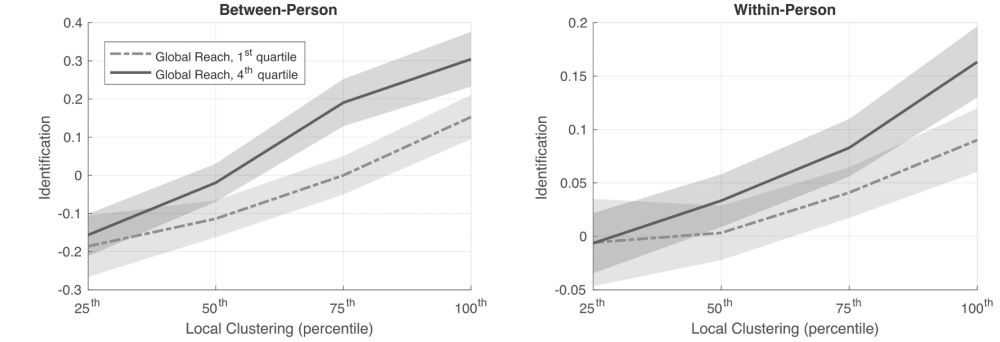
Both predict identification, even within person over time.
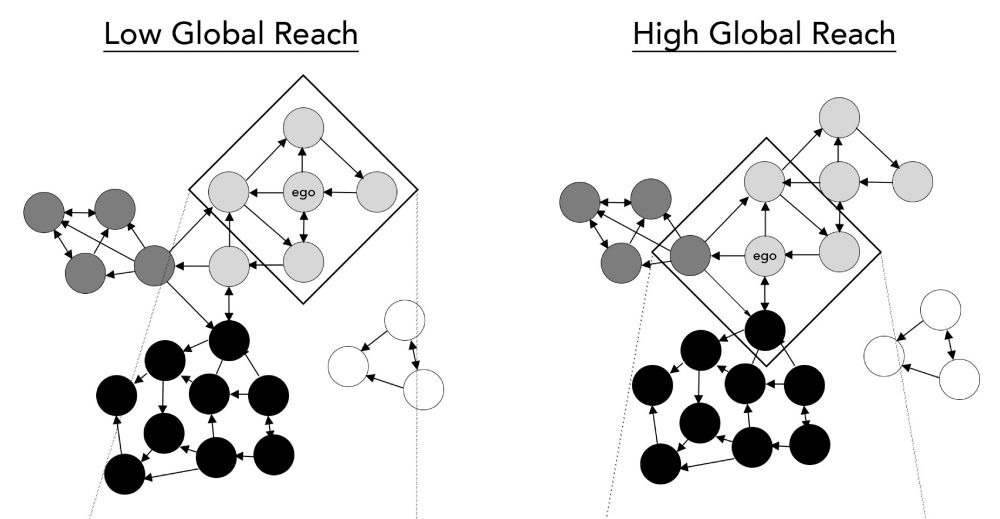
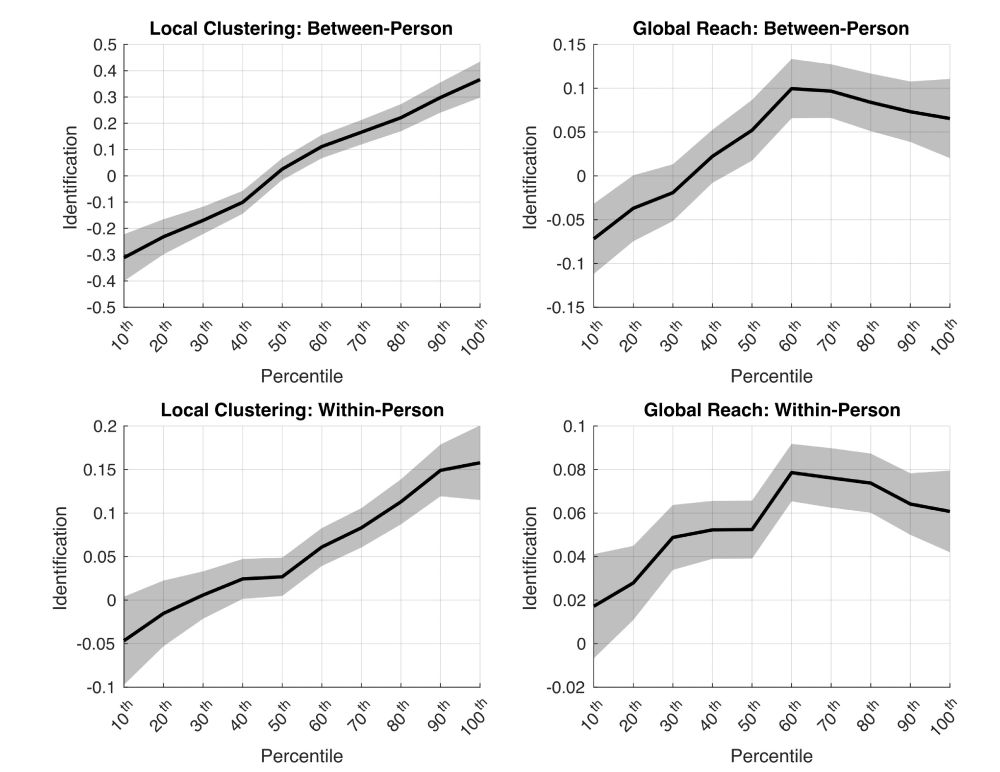
Both predict identification, even within person over time.
github.com/roamanalytic...
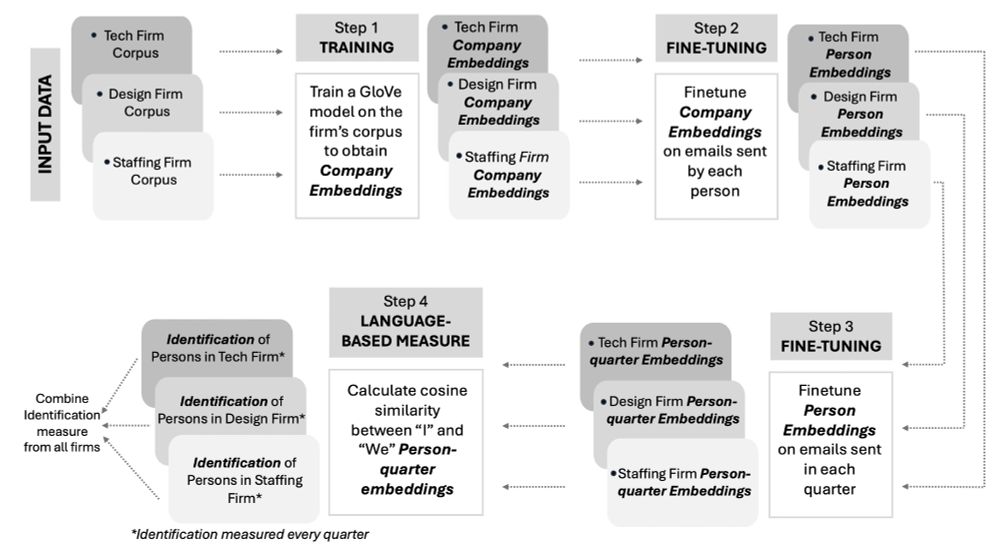
github.com/roamanalytic...
Building on (largely untested) sociological intuitions, we show how positions in the organizational network relate to identification with the organization, using a language model:
www.journals.uchicago.edu/doi/abs/10.1...
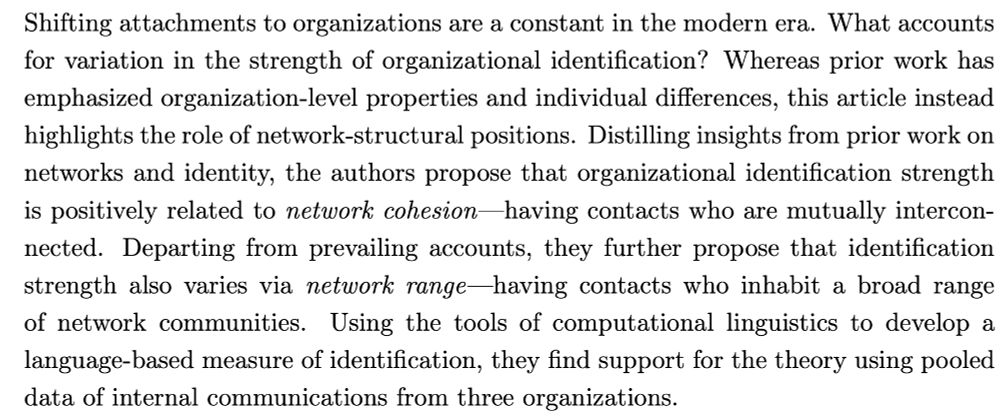
Building on (largely untested) sociological intuitions, we show how positions in the organizational network relate to identification with the organization, using a language model:
www.journals.uchicago.edu/doi/abs/10.1...
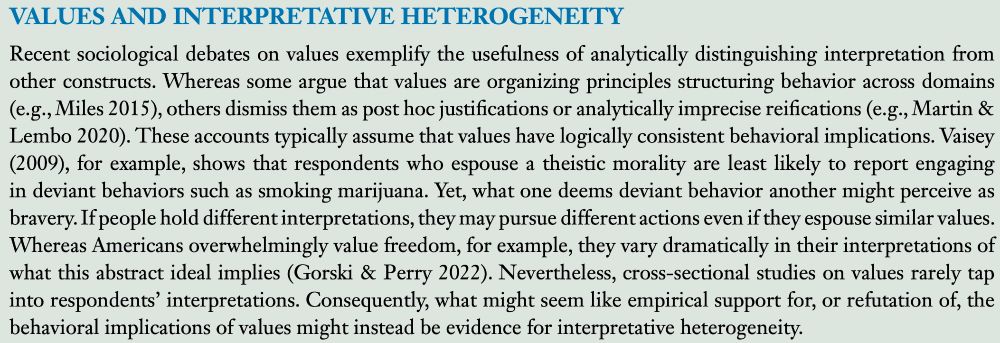

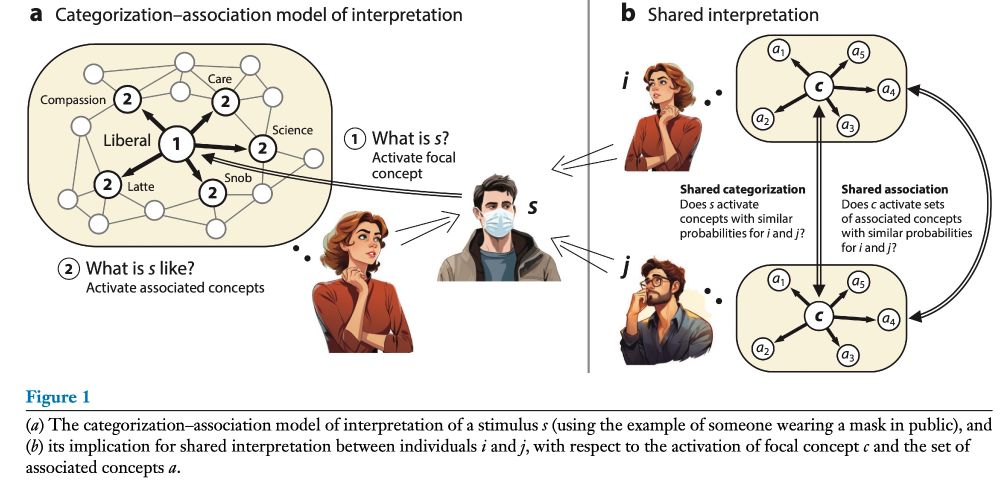
at ASR, we argue, and demonstrate, that people are allowed to borrow from other cultures if they incurred a cost. We call that “cultural tariffing.”
osf.io/preprints/so...
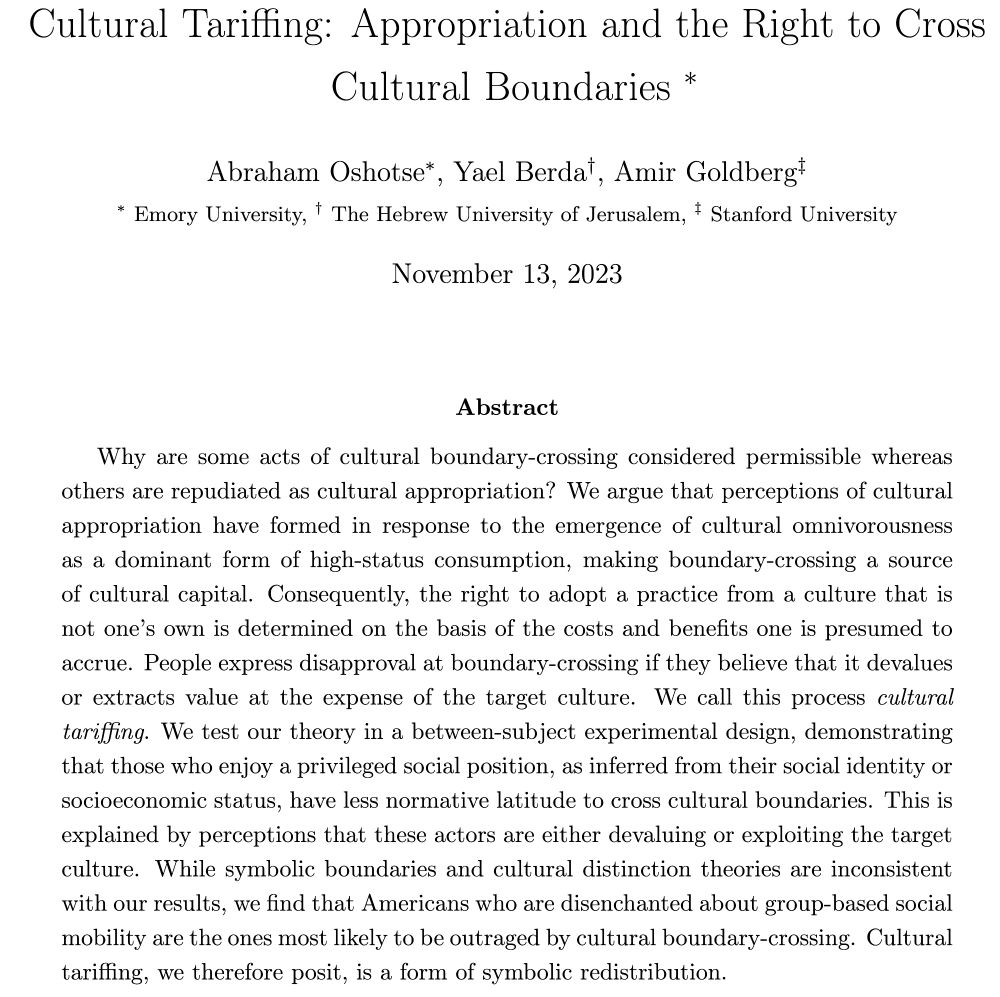
at ASR, we argue, and demonstrate, that people are allowed to borrow from other cultures if they incurred a cost. We call that “cultural tariffing.”
osf.io/preprints/so...

